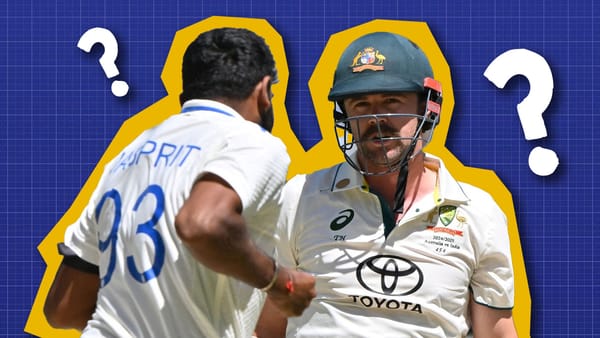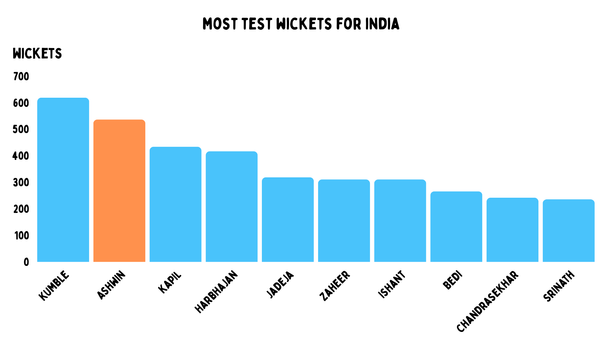Female Tennis Burn Out
An interview with Barry Cowan.
A while back when I was making an episode of The Dive I talked to former English Tennis player - and now coach Barry Cowan. The reason we were chatting was because it was an episode about comebacks, and outside of boxers I thought women’s tennis players had the most famed comebacks. So this is an edited transcript of the chat. We talk about the stresses on young professional women players, waking up in the morning knowing you have to hit the ball again, and why the Ash Barty story is so important for the game.

JARROD KIMBER It seems certainly from the outside, like women's tennis players retire at a younger age than other athletes. Is that fair to say?
BARRY COWAN I think it most certainly is fair. I think one of the reasons for it is if you historically look at female tennis players, some of the greats that have been real excellent world-class players, they've excelled at their sport at a very young age.
And the reason they've excelled at the, at a very young age, Jennifer Capriati age 14, Martina Hingis winning grand slam doubles, winning grand slam singles, age 16 is today. Get to that stage. They've had to sacrifice and put in so many hours. When you look at tennis, it's very much a repetition sport. So to sort of break it down simply the more hours you do, the more time you spend on court, the more chance you have of getting a higher level earlier.
And then when you put in the mental side of it, No wonder it takes its toll. And I think, you know Coco Gauff last year, she hit the headlines and so much of the debate last year around her run at women and was well, should they scrap the rule that they now have and the women's tour, where you're only allowed to play so many tournament's at her age, or should you keep it in place?
And certainly for my belief is that they should, that they should keep that rule in place because what, yes, you want the players to reach their potential, but you also want longevity. And along with longevity, you also want the players to be mentally fresh enough to be able to have a long career.
Listen to the original episode here.
JK And is it a bit like child actors where they're thrown into an adult world? Professional sports, if you're 25 is quite an interesting, but if you're 14, 15, 16, it must be the stress of that. Mentally traveling around, having an entourage must just be really tough for those, especially the ones who get to the top and everyone knows who they are.
BC Yeah, I think it's a really good point. And if you look at, if you, if you look a lot of tennis players, I would say generally as well, and there are, there are always exceptions to the rule, but I think if you look at it mainly they are, they have a very driven parent or two, and they're the ones who make the sacrifices.
And then there have been occasions as well where the whole family's making sacrifices. So at a young age at 12, 13, some of them are homeschooling as well. And so much pressure on them and the whole family is living their life or living their lives around that very, very talented tennis player who ultimately is trying to hit it big time.
And then you've got the pressures of, of playing in front of a crowd. You mentioned an actor. You're on stage. Every time you go out to play, you are in the spotlight, and then you've got the media, us, who are looking at every match.
Yeah. Play well, actually, Player X. She wasn't as mentally strong as she was a month ago, she doesn't look physically as strong as she was two months ago. And then you sort of trying to find reasons why they've got to be able to bat it off in their press conference. And there's no hiding place, in team sports if you have a bad day, there may be the man the manager has to pick up a flack.
In tennis you're the one who's got face the interviews afterwards. And at times there's no hiding place as well because your tennis, unlike, you look at Olympic sports, Olympic sports, you okay. It's a different pressure in a sense that you've got four years to build up to that one event, which might only take 12 seconds.
Might only take one minute tennis it's it's that never ending treadmill.
JK Do you think the majority of the early retirements then are just place who are burnt out at a younger age?
BC Yes. I think tennis players get burnt out. I mean, my situation, I was a much better tennis player when I stopped then I was naturally when I started, but I'd been traveling for 10 years and yes, it's an amazing lifestyle.
But it takes its toll, going from tournament to hotel, to hotel, airport, to airport. When you factor in starting at such a young age, I think it's totally understandable. And that's why I look at someone like a Serena Williams and on the women's side and Roger Federer on the men's side, I just think, wow.
That is extraordinary. I mean, it was only, would you probably say over a decade ago, people were saying about Serena Williams asked Serena Williams. She won't be playing in another couple of years. That'll be it, but she's still winning slams and she's still, even since she's given birth to her first child, she's still making playing well at majors.
JK As far as the comebacks go, we've seen Martina Hingis and Jennifer Capriati come back. Capriati I think got back to number one. Hingis was a great singles player and after her comeback was a great doubles player. I assume one of the reasons they make successful comebacks is their age, they're still so young.
BC Yep. And Kim Clijsters as well, different different circumstances, had a baby came back and I think stand to be corrected. Maybe her third year stroke, fourth tournament, she goes out and wins the us open.
It's like riding a bike. You never forget it how to hit a tennis ball. What you do sometimes forget is how to win the big matches come through the big moments, but as a champion. You can never underestimate that Champion's mentality.
Goran Ivanisevic was one of the most amazing stories, although he never really retired to go from where he was the depths of despair, really in 2001 comes through. From wildcard to win Wimbledon. I mean did he start off women in that year with it being in contention to win Wimbledon? Absolutely not. But the deeper he got into the tournament, the more his confidence grew because he kind of been there before.
So Capriati was an amazing story, but when you talk about comebacks it has to come with the will. And I always feel generally the will is what goes first. The will to be able to get out of bed every day and make yourself a bit better tennis player.
And that can be mentally challenging because tennis essentially is hitting a ball backwards and forwards. And when you've done it, millions and millions and millions of times, I can totally get it when players really say, you know what enough is enough?
JK We saw Ash Barty, give up tennis, go to cricket and then come back to tennis. She's now gone on to be world number one. Annabel Croft was someone who retired very early on. I think she was 20 or 21. So let's say Barty doesn't come back. And there's a lot of Annabel Crofts out there who are good players, but are retiring in their early twenties. That means women's tennis probably missed out on some incredible players because of this burn out.
BC That's how I sit and that's certainly, it seems how the WTA see it and, that's why they brought in the rule. It's that welfare of the athlete, you know, so for every Sharapova, which was an extraordinary story, winning Wimbledon at 17 years of age, we don't hear of the thousands of tennis players who go through that homeschooling who go to that tennis Academy, where it be, whether it be in Florida, whether it be in Spain, whether it be somewhere else, who'd fall by the wayside.
And then you kind of left with nothing. So they're the ones who don't make it and the ones who do make it that retire early. You never know what could have been. And I actually think that the Barty story, and you mentioned it, Jarrod, I think the Barty story is great for tennis, because what it shows is you can get off that conveyor belt, that treadmill and by taking a break away from the sport. Now Barty was fortunate that she was talented enough, that she was still able to stay in that sort of mentality. You know, it wasn't as if she gave up tennis and then sat in a living room watching TV for six months.
You know, her mind is still very much active that actually you can come back a better tennis player. Now, do you come back at tennis player because you've had a lot more balls? No. It was because I think you mature. And it's also something that is close to my heart that I think it ends up being more of a negative when you see junior players sacrifice absolutely everything that they don't have that all around development. And so if you can play team sports along with your tennis. It's a long career. I mean, now tennis players are playing amazing tennis, but 35, 36, 37 38 were. You know, 20 years ago. you felt as a tennis player, certainly more so as a female tennis player. Well, actually, if you're not, if you're not hitting the big time at 23, 24, then it's too late. That isn’t the case now.
So what I think, what you might find 20 years ago go Coco Gauff, she might have won a major at 17. It might be the major at 20. But I think ultimately she'll win more majors because of it (the WTA rules to protect her).





